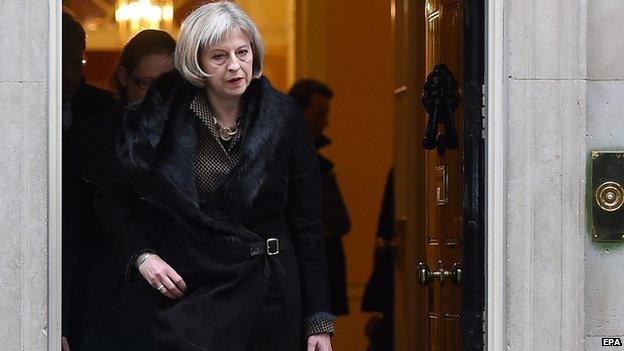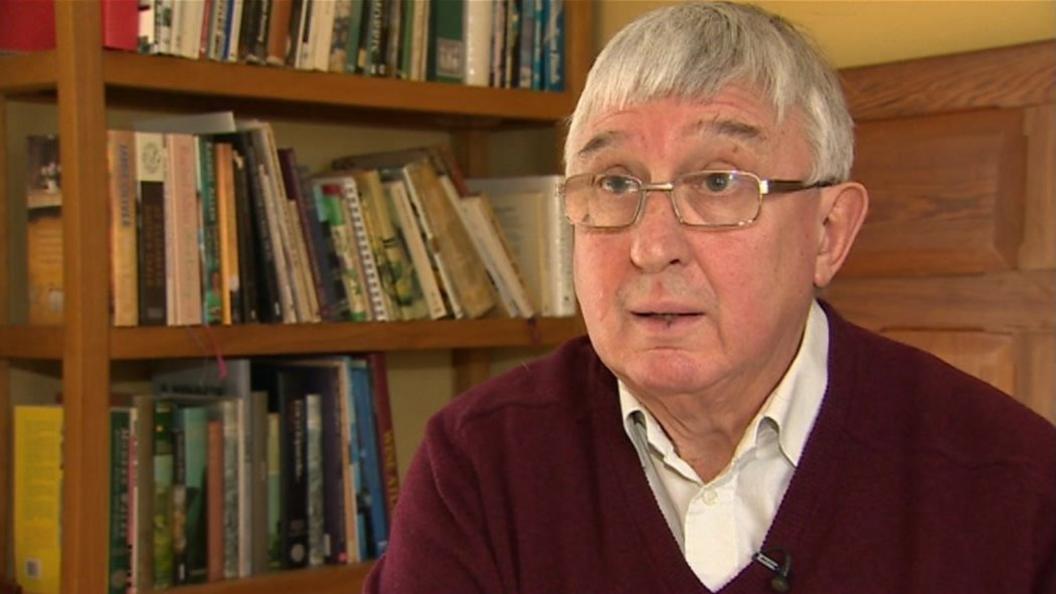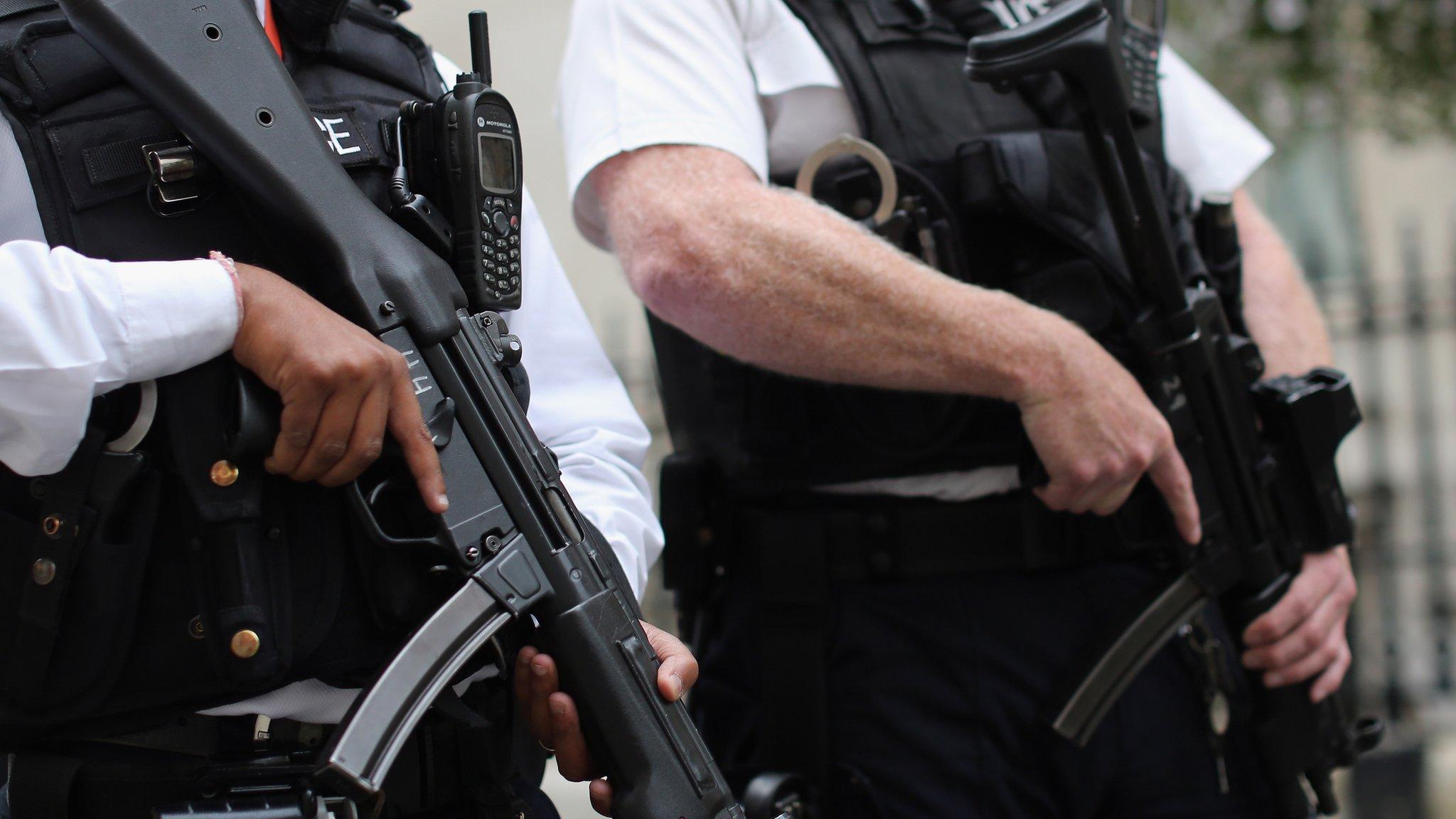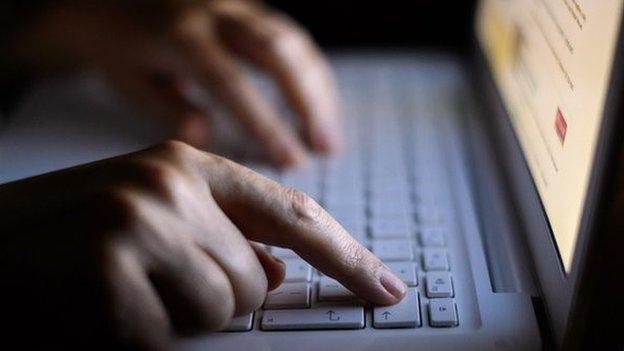Lords to debate counter terror bill
- Published

Home Secretary Theresa May would sign the proposed exclusion orders
Peers are to debate the government's counter-terrorism bill, which will give new powers to the security services.
The Counter-Terrorism and Security Bill would allow the home secretary to impose temporary exclusion orders on British terror suspects.
There have been calls for ministers to change the proposals to allow judicial oversight of the orders.
In other measures, universities and councils would be required to take steps to counter radicalisation.
The new legislation, which receives its second reading in the House of Lords on Tuesday, also includes:
Changes to TPIMs - Terrorism Prevention and Investigation Measures - to allow the authorities to force suspects to move to another part of the country
Requiring internet providers to retain internet protocol address data to identify individual users
Raising the burden of proof for imposing TPIMs from "reasonable belief" to "balance of probabilities"
Greater powers to disrupt people heading abroad to fight - including cancelling passports at the border for up to 30 days
Tighter aviation security - requiring airlines to provide passenger data more quickly and effectively
Banning insurance companies from covering ransom payments
Forcing firms to hand details to police identifying who was using a computer or mobile phone at a given time
Under the exclusion orders proposal, Home Secretary Theresa May would be able to sign an order to ban a suspected extremist from returning to the UK, for up to two years at a time.
The individual could return if they agreed to some kind of investigation or monitoring arrangements to ensure they were not a threat.
Labour has called for a judge to have a role when the orders are imposed.
This view was echoed by David Anderson QC, the government's independent reviewer of terror legislation.
He told BBC Radio 4's The World at One: "If you are going to give these very powerful instruments to the home secretary to decide that she believes someone is a terrorist and they should be constrained in their movements for two years or so, you have absolutely got to have proper judicial safeguards, otherwise you end up fuelling the whole grievance agenda that is at the root of the terrorism in the first place."
Immigration and Security Minister James Brokenshire said the measures contained in the bill were a "considered and targeted" response to the terror threat,
"These important new powers will only be used when it is necessary and proportionate and are subject to stringent safeguards and oversight," he added.
- Published25 November 2014
- Published15 December 2014
- Published12 January 2015

- Published24 November 2014

- Published12 January 2015
